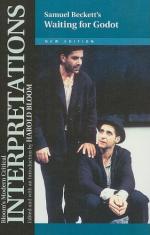|
This section contains 675 words (approx. 3 pages at 300 words per page) |

|
As you would expect, the situation [in Company] is as you would expect. A narrator narrates about someone almost terminally deprived, who may or may not be the narrator himself and of whom what can be said is debatable but in any case exiguous. The fiction exists on the brink of non-existence, and through proposition and counter-proposition constantly threatens to cancel itself out. Yet this minimalism and self-contradiction make it both a touching metaphor for human life and a vehicle through which the largest and strongest emotions about birth, childhood, love, old age and impending death unequivocally make themselves felt.
Why, since we know from the first sentence that what Company is about is more or less what Malone Dies or The Unnamable or Not I are about, should we read on? A lot of people won't, of course: few writers' non-readers are so resolute as Beckett's, or...
|
This section contains 675 words (approx. 3 pages at 300 words per page) |

|


